Today in Japan ~ June 10th (旧暦2021/5/1)
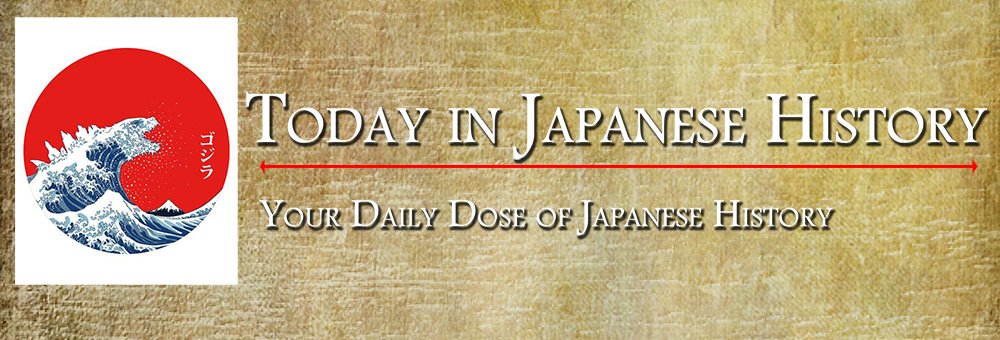
And here is your daily almanac for Thursday the 10th of June 2021.
Today is taian (大安), one of the rokuyō, the Buddhist horoscope. This is the most lucky day of all, so go do something great today! (If you forget the details of the rokuyō, see this post)
Today is also a New Moon. In astrological terms, it is a good time for beginnings. That matches well to it being taian today.
It is the first day of kusaretaru kusa hotaruto naru (腐草為螢), which translates to something like "Decaying Grass becomes Fireflies". This is the time the much beloved fireflies start to come out. Though they are not nearly as common these days as they were even a generation ago, they can still be seen in darker, more quiet and less polluted places away from the city.
On the old calendar (旧暦) today would have been the first day of the fifth month.
(by the way, trying some new formatting here for this issue of Today in Japan. Hive is still frustrating, as Steemit was, for the lack of custom css support. If you know any tips for better positing these images in this post, please let me know)
Today in 671, Emperor Tenji introduced a water clock called rōkoku (漏刻, literally “leaking” + “cutting, measuring”).
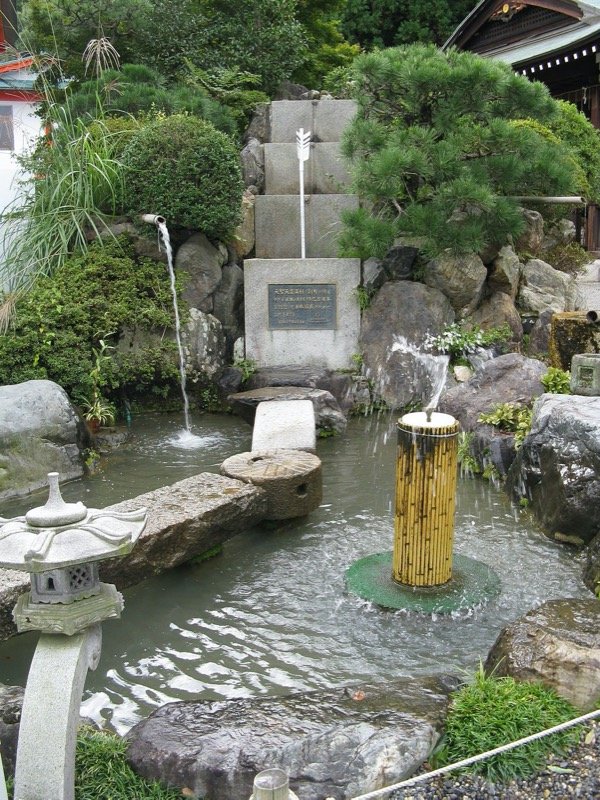
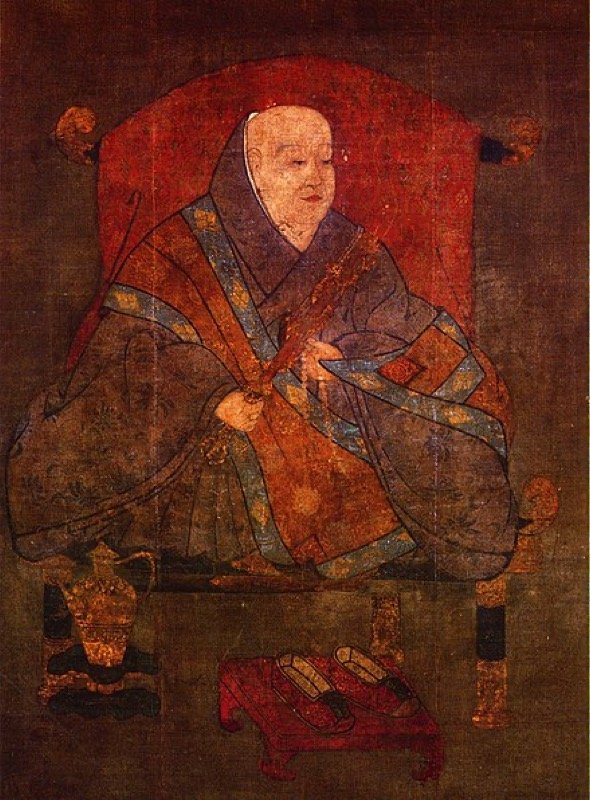
Emperor Uda was born today in 866. He was the third son of Emperor Kōkō and given the name Sadami. He ascended to the throne following his father's death near the end of 887, becoming the 59th emperor of Japan.
Emperor Uda's reign was marked by a prolonged struggle to reassert power away from the Fujiwara family. In this he had some degree of success, but it was short-lived as the Fujiwara were able to regain their influence with future emperors.
In 897 he abdicated in favor of his eldest son, Prince Atsuhito, who took the name Emperor Daigo, and entered the priesthood at Ninna-ji, the temple he had helped create nine years earlier, where he would stay until his death in 931.
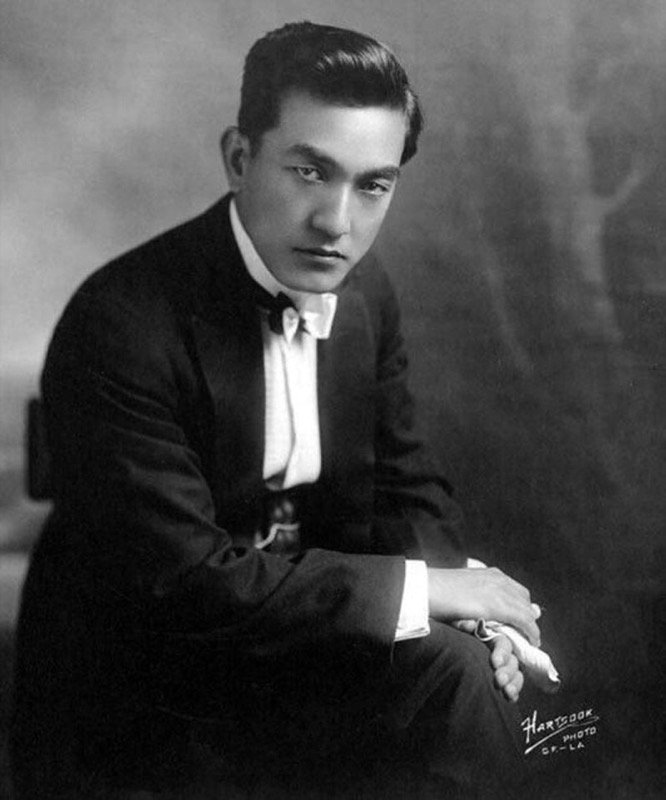
In 1886, Sessue Hayakawa, actor and producer, was born. He was one of the most popular stars in Hollywood in the silent film era, becoming the first Asian man to become be a leading man, and one of the highest paid stars of the time, earning $3,500 a week in 1919, which would be 54,000 in 2021 dollars. He was known for his extreme good looks and was a sex symbol of the time. He was often cast as sexually dominate villains.
During WW II be became separated from his family and trapped in Nazi occupied France. His final major role was as Colonel Saito in "The Bridge on the River Kwai" a role he considered the highlight of his career. He retired after the film and except for minor appearances here and there dedicated himself to Zen Buddhism, becoming an ordained Zen master. He died in 1973.
Today marks the death of Kitabatake Akiie, in 1338.
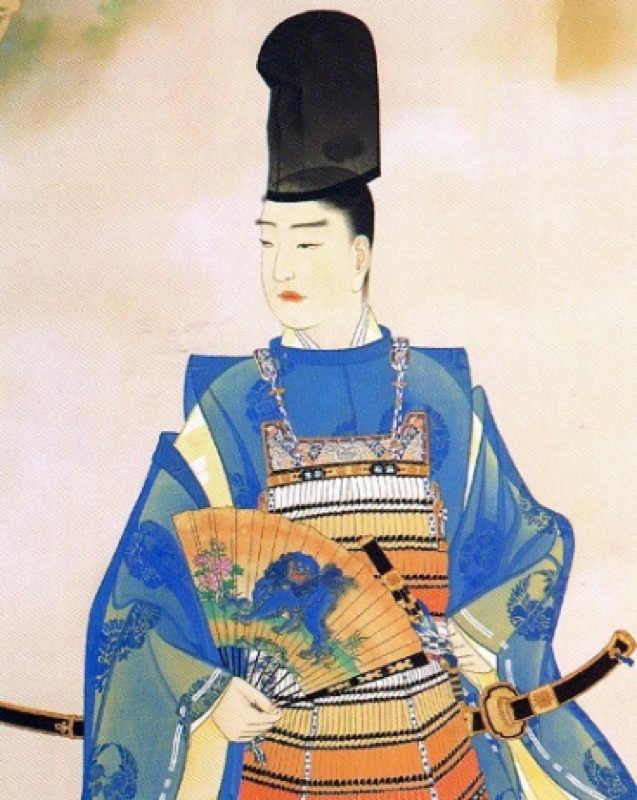
He was governor of Mutsu, a huge area covering a large percentage of Northern Japan, and supporter of the Southern Court during the Northern and Southern Court period.
He was successful in many early battles during the conflict but was finally defeated and killed at Izumi at the age of twenty-one.
Akiie was famous for his fūrinkazan banner, meaning "wind, forest, fire, mountain", a reference to Sun Tzu's "The Art of War" where it is written "as swift as wind, as gentle as forest, as fierce as fire, as unshakeable as mountain". A few hundred years later, Akiie was held in great esteem as one of the finest generals, and Takeda Shingen took the flag and his own battle standard, making it even more popular.

Here is a poem from Emperor Tenji, the first poem of the famous hyakuin isshu.
Aki no ta no
Kariho no io no
Toma wo arami
Waga koromode wa
Tsuyu ni nuretsutsu
Coarse the rush-mat roof
Sheltering the harvest-hut
Of the autumn rice-field;
And my sleeves are growing wet
With the moisture dripping through.
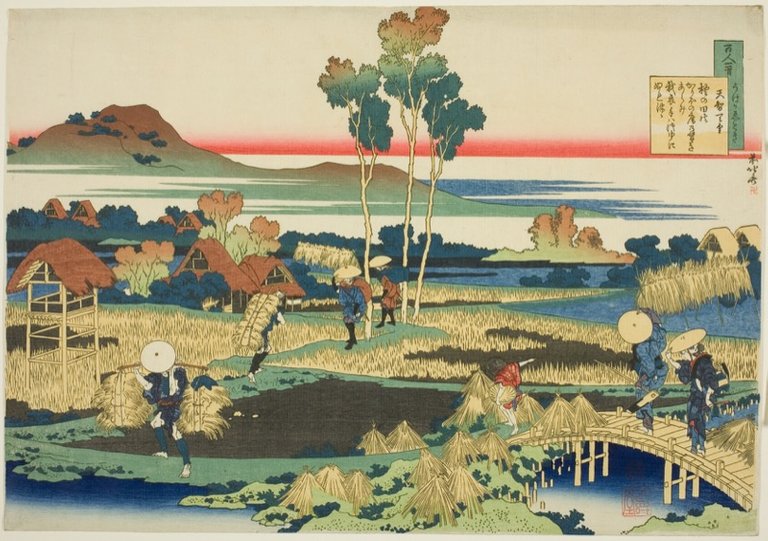
This scene is based on the story that while the emperor was traveling in the countryside, a sudden shower forced him to take shelter in a flimsy, temporary hut in a rice field. His poem expresses his sympathy for his subjects who must work and endure every day under such conditions. But there are many other interpretations of this poem.
That's all for today. Until next time: Be well, do good work, and keep in touch. Have a good day today!
❦
 | David LaSpina is an American photographer and translator lost in Japan, trying to capture the beauty of this country one photo at a time and searching for the perfect haiku. |
Great post about historical Japan.